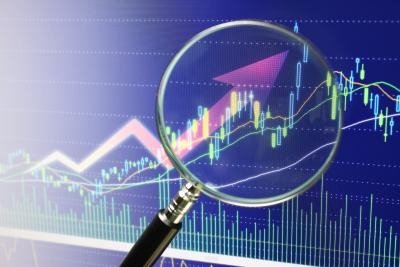An assessee may reduce his tax liability by transferring his assets in favor of a person who is related to him. As per [Sec 60] to [Sec 64], income belonging to some other person will be taxed in the hands of the assessee in certain situation for the purpose of avoiding tax evasion. This is called clubbing of income. Transfer of income without the transfer of assets: Income arising to nay person by virtue of any transfer of any income, without transferring the assets is deemed to be the income of the transferor and is taxable in his hands. The transfer may be revocable or not. There is no exception to this rule. Revocable transfer of assets: Any income arising to any person from an asset as a result of revocable transfer of asset shall be deemed to be the income of transferor. As per [Sec62] the income revocable Continue reading
Abey Francis
Fundamental Analysis of Stocks
Definition of Fundamental Analysis Fundamental analysis of stocks is defined as the practice of examining the fundamentals of an organization in order to determine if a business has turned out to be a good investment. Fundamental analysis aims are answering questions related to the business finance and capital investment, such as “what are the probabilities that this business investment is going to fail or become bankrupt” and “how sure can a portfolio manager be that the stock continues to pay dividends?” In other words, fundamental analysis involves detailed study in regards to financial statements like the balance sheet. It is considered as a complete contrast to technical analysis of stocks. Fundamental analysis of stocks deals with the analysis of the financial, economic, as well as other quantitative and qualitative elements associated with a security with the sole intention of determining its intrinsic value. Even though this technique is employed for Continue reading
Difference between Fundamental and Technical Analysis
While analyzing price movement, forex trade uses two primary types of analysis. Those concentrating on price movement and neglect other factors choose to guide their efforts at enhancing their skills at technical analysis, whereas traders preferring to examine the economic events which cause the market action mainly throw light on their efforts in analyzing fundamental analysis. Most traders wish to mix the information supplied by these two kinds of analysis in order to generate accurate trading signals. Others focus on one aspect of analysis and discard the other type from the computations, and yet it can be said that either of the approaches can be valid with respect to the circumstances. In essence, there are traders who have been acquiring reputation as well as wealth by trading effectively based on fundamental analysis. But as both of these people disagree in several subjects, they would most probably agree with the fact Continue reading
Technical Analysis of Stocks
Definition of Technical Analysis Technical analysis is the process of utilizing past trading information and stock price trends related to a specific security, and then equating those to how other likewise investments have responded throughout history to similar patterns. Further, when a pattern is identified, the investor can predict that the future pricing of the target investment is likely to respond in a similar manner to patterns observed earlier. Technical analysis of stocks assumes that current prices should represent all known information about the markets. Prices not only reflect intrinsic facts, they also represent human emotion and the pervasive mass psychology and mood of the moment. Prices are, in the end, a function of supply and demand. However, on a moment to moment basis, human emotions,fear, greed, panic, hysteria, elation, etc. also dramatically affect prices. Markets may move based upon people’s expectations, not necessarily facts. A market “technician” attempts to Continue reading
Income from Other Sources
Income from other source is a residuary head of income. Any item of income which does not fall under any other four specific heads of income is to be charged under this head. According to sec 56(2) following incomes are chargeable under this head. Dividend declared by a foreign company Family pension Winnings from lottery, crossword puzzles, horse race etc Income from plant, machinery or furniture let out on hire where it is not the actual business of the assessee. Interest from securities, bank deposits Income from sub letting Any other receipts which doesn’t fall under any other heads of income. Income from agricultural land situated outside India Examiner ship fees received by college teachers Income from undisclosed source Ground rent etc Receipts without consideration in certain cases Dividend It means any amount paid by a company, out of divisible profits, whether taxable or not taxable, to its share holders Continue reading
Income from Capital Gains
Any profits and gains arising from the transfer of a capital assets effected in the previous year shall be chargeable to income tax under the head capital gain in the PY in which the transfer took place. It should satisfy the following conditions There should be a capital asset The capital assets should be transferred. Transfer should result in profit or gains Capital Asset means any property of any kind held by an assessee whether or not connected with his business or profession. But the following assets are not capital assets. Any stock in trade, consumable stores or raw materials held for the purpose of his business or profession. All personal effects except jewellery Agricultural land in India which is situated in rural area etc. Continue reading

